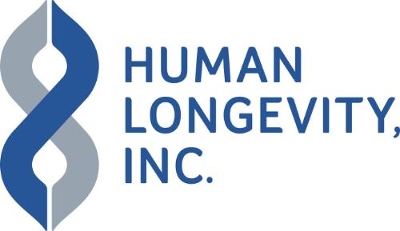Human Longevity Inc. launched to promote healthy aging using advances in genomics and stem-cell therapies
March 5, 2014

Human Longevity Inc. (HLI), a genomics and cell therapy-based diagnostic and therapeutic company focused on extending the healthy, high performance human life span, was announced today by co-founders J. Craig Venter, Ph.D., Robert Hariri, M.D., Ph.D., and Peter H. Diamandis, M.D.
The company, headquartered in San Diego, California, is being capitalized with an initial $70 million in investor funding.
Largest human sequencing operation
HLI’s funding is being used to build the largest human sequencing operation in the world to compile the most comprehensive and complete human genotype, microbiome, and phenotype database available to tackle the diseases associated with aging-related human biological decline.
HLI is also leading the development of cell-based therapeutics to address age-related decline in endogenous stem cell function. Revenue streams will be derived from database licensing to pharmaceutical, biotechnology and academic organizations, sequencing, and development of advanced diagnostics and therapeutics.
“Using the combined power of our core areas of expertise — genomics, informatics, and stem cell therapies, we are tackling one of the greatest medical/scientific and societal challenges — aging and aging related diseases,” said Dr. Venter. “HLI is going to change the way medicine is practiced by helping to shift to a more preventive, genomic-based medicine model which we believe will lower healthcare costs. Our goal is not necessarily lengthening life, but extending a healthier, high performing, more productive life span.”
HLI has initially purchased two Illumina HiSeq X Ten Sequencing Systems (with the option to acquire three additional systems) to sequence up to 40,000 human genomes per year, with plans to rapidly scale to 100,000 human genomes per year. HLI will sequence a variety of humans — children, adults and super centenarians and those with disease and those that are healthy.
HLI is concentrating on cancer, diabetes and obesity, heart and liver diseases, and dementia, with its team of expert scientists and clinicians. The company has established strategic collaborations with Metabolon Inc., University of California, San Diego, and the J. Craig Venter Institute (JCVI).
Initial focus on cancer
HLI is focusing its initial clinical sequencing efforts on cancer. While many are tackling this area using gene sequencing and other advanced technologies, there has not been a comprehensive clinical effort to combine germ line, human genome and tumor genome sequencing along with comprehensive biochemical information from each patient.
HLI and UC San Diego have signed a collaborative research agreement to develop protocols and procedures to enable whole genome, microbiome and tumor sequencing and analysis of consenting UC San Diego research patients. The goal is to analyze, utilize and share the data generated with the objective of enhancing diagnostic abilities and improving patient outcomes. The collaboration has begun with the UC San Diego Moores Cancer Center led by Director Scott Lippman, M.D. The company will seek to extend this type of agreement and program with UC San Diego to other clinical centers worldwide.
Human Genotype and Phenotype Database Development: Microbiome and Metabolome Data
Along with the genomic data gleaned from the sequencing of complete human genomes, HLI will also be generating microbiome data for many of these individuals through its Biome Healthcare division, under the leadership of Karen Nelson, Ph.D. Nelson and her team led the first human microbiome study on the human gut which was published in the journal Science in 2006.
The microbiome consists of all the microbes that live in and on the human body that contribute to health and disease status of an individual. By better understanding a person’s microbiome (gut, oral, skin, lung, and other body sites), the company anticipates developing improved probiotics and other advanced diagnostic and therapeutic approaches to improve health and wellness.
Along with the microbiome data, HLI will capture and analyze each individual’s metabolomic data. The metabolome is the full complement of metabolites, biochemicals and lipids circulating throughout the human body. HLI has signed an agreement with Metabolon Inc., a diagnostic products and services company offering the biochemical profiling platform, to capture this information from each of the genomic samples that HLI is collecting. Metabolomics is important because quantifying and understanding the full picture of circulating chemicals in the body can help researchers get a clearer picture of that individual’s health status, and provide markers and pathways associated with drug action.
Stem Cell Therapies
The company will be embarking on an ambitious multi-pronged effort utilizing stem cell therapy advances to enhance and improve the healthy life span. HLI’s work is premised on the theory that as the human body ages many biological changes occur, including substantial changes and degradation to the genome of the differentiated, specialized cells found in all body tissues. There is also a depletion and degradation of healthy regenerative stem cell populations in the body over time. HLI will monitor the genomic changes which occur during stem cell differentiation, normal aging, and in association with the onset of disease.
“The global market for healthy human longevity is enormous with total healthcare expenditures in those 65 and older running well over $7 trillion,” said Dr. Hariri. “We believe that HLI’s unique science and technology, along with our business leadership, will positively impact the healthcare market with novel diagnostics and therapeutics.”
Other Strategic Collaborations
HLI is establishing a collaboration and research services agreement with the JCVI covering proteomics, infectious disease diagnostics, and the human microbiome. Dr. Venter is founder and CEO of JCVI, leaders in human, microbial, and synthetic genomics. HLI will be licensing intellectual property from JCVI.
“Between 1910 and 2010 improvements in medicine and sanitation increased the human lifespan by 50 percent from 50 to 75 years,” said Dr. Diamandis. “Today with the emergence of exponential technologies such as those being pioneered and advanced by HLI we have the potential to meaningfully extend the lifespan even further.”
